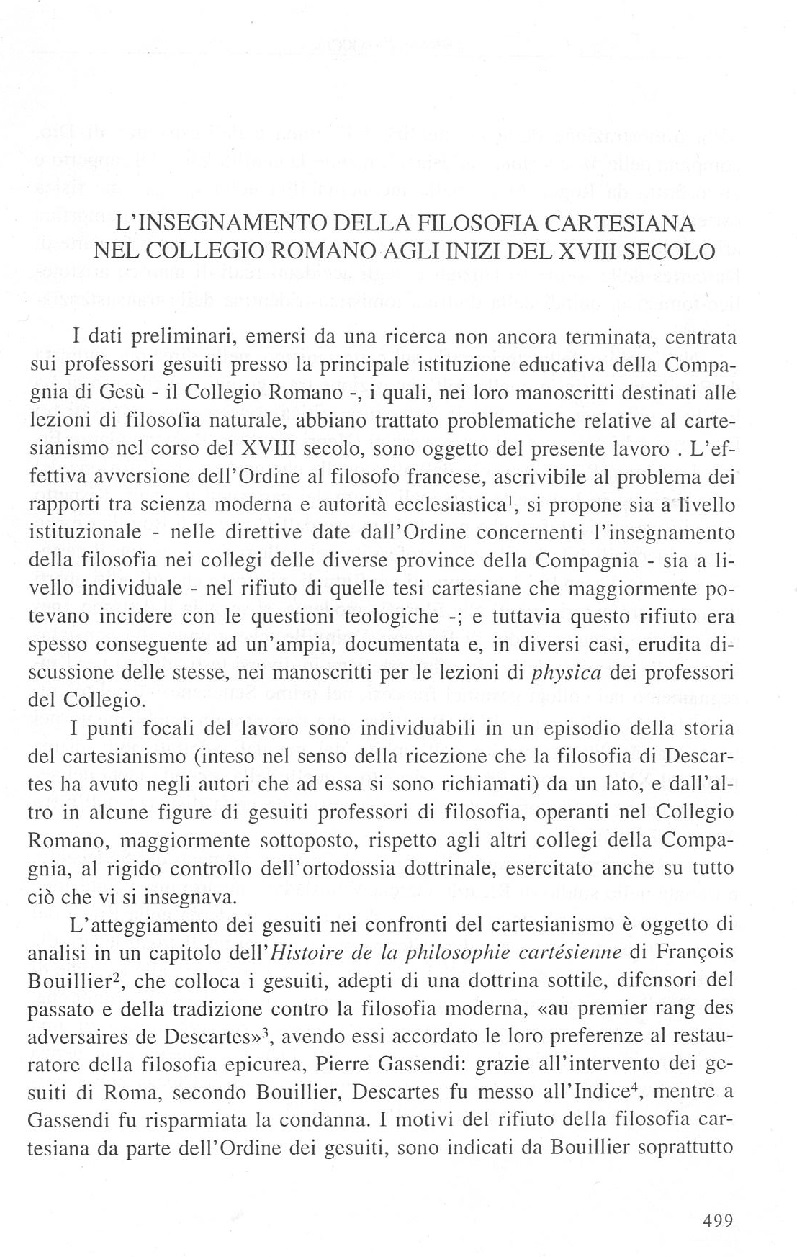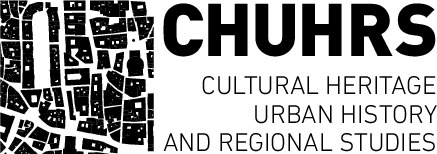
- Roma moderna e contemporanea
- Codice etico
- Editore e amministrazione
- Organi scientifici
- Indicizzazione e valutazione
- Norme editoriali
- Ultimo fascicolo
- Indice dei fascicoli
- Indice degli autori
- Articoli Open access
- Call for papers Numero monografico
- Abbonamenti
- Info recensioni
- Trasferimento di copyright
- Richiesta di autorizzazioni
AMBIENTE DI TEST
Indice dei fascicoli
ROMA MODERNA E CONTEMPORANEA » 1999/3 » Roma e la Scienza (secoli XVI-XX)
ISSN 1122-0244
Capoccia Anna R.
L'insegnamento della filosofia cartesiana nel Collegio romano agli inizi del XVIII secolo
pp.499-535
Articoli
Abstract: CARTESIAN PHILOSOPHY TEACHING IN THE COLLEGGIO ROMANO AT THE BEGIN OF THE 18TH CENTURY
The previously unpublished texts regarding the natural philosophy courses held by the professors of the Collegio Romano during the first two decades of the XVIII century give away to a discussion on the Cartesian notions that closely influences theological issues. As a result of Father Giovanni Battista Tolomei’s (1969) printed lectures, the first member of the Society of Jesus to expound Cartesian philosophy in the college’s classrooms, on the basis of the documents taken into consideration, it is evident that he approved of Cartesian methods. Furthermore, the acknowledgement of cogito (reason) as a veritas prima (foremost truth), as well as being the truthful criteria in the progress of knowledge, implies the assimilation of alla metaphysical conjectures within Descartes’ Meditationes (meditations). In addition, it also means the acceptance of the path engaged herein, which stems from both a rejection of sensible awareness and the realization of an existing skepticism that extends as far as one’s own existence. The first of thirty propositions included in the XV General Congregation, would have forbidden to teach and spread such an idea.
Ignazio Guerini’s lectures (1709), though refuting the Cartesian system, reveal the widespread knowledge of the French philosopher’s works as well as a the great importance accorded to his philosophy.
In comparing the Lettere filosofiche (Philosophical letters), writings of a semiprivate nature, and the manuscript of Giulio Gori’s lectures (1723) Introductio phisicae (sic) aristotelicae (An introduction to Aristoteles’ physics) a double-edged attitude toward Descartes emerges, in the consensus of the former and the refusal of the latter. The Obiectiones (Objections) that the moves against such a philosophy seem to arise from the thirty propositions of 1706. They display a strong and preoccupied orthodoxy, ascribable solely to Giulio Gori’s “public sphere of influence”.

Referenze
- download: n.d.
- Url: http://www.chuhrs.eu/?contenuto=indice-dei-fascicoli-rmc&idarticolo=39
- DOI:
- citazione: A. Capoccia, L'insegnamento della filosofia cartesiana nel Collegio romano agli inizi del XVIII secolo, "Roma moderna e Contemporanea", VII/3, pp.499-535, DOI:
